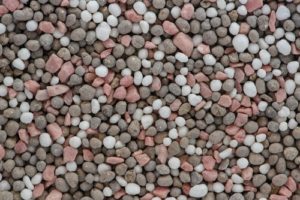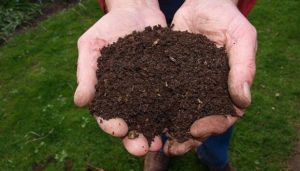Organic or Synthetic?
Fertilizers come in many shapes and forms. You have your organic methods, which can be quite smelly and displeasing to work with, or you have your “over the counter” fertilizers that have numbers on them that seem way too scientific to explain or understand. As a horticulturist with a heavy background in turf, where typically there is no threshold for keeping things green and lush on residential estates, I would previously tend to lean far more on the chemicals to give the desired effect. Does it work? Sure. Always “right”, well, that’s for a different discussion. What we’re here for today is to discuss garden soil health. As many times as our mothers have told us to “brush your teeth before bed”, we now know that organic matter in the soil is the key to a healthy garden. Adding organic matter to your garden in the form of compost is the most beneficial long-term mechanical practice that you can do. It conditions the soil as well as adds many beneficial bacteria which aid in the ability for plants to absorb the nutrients necessary for the desired effects that you are looking for. However, these “soil conditioners” take time. Simply put-organic matter in the form of compost is the best thing for your garden long term.


